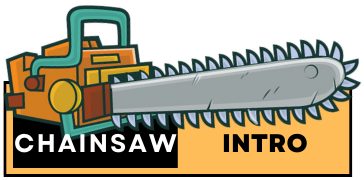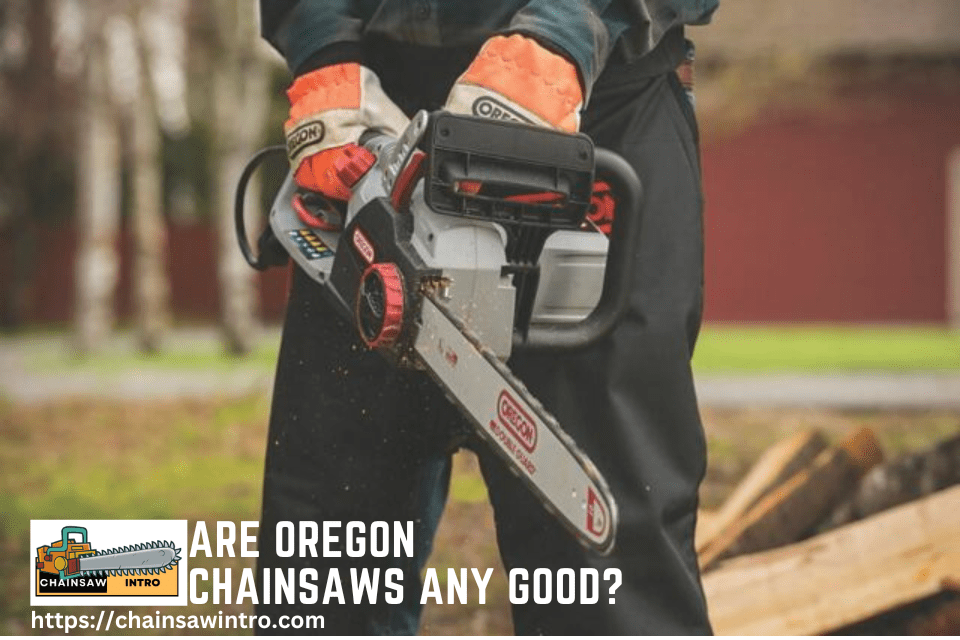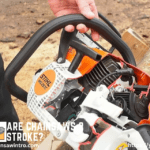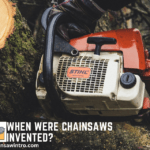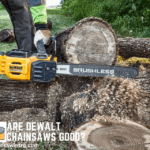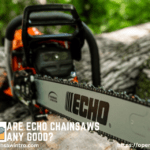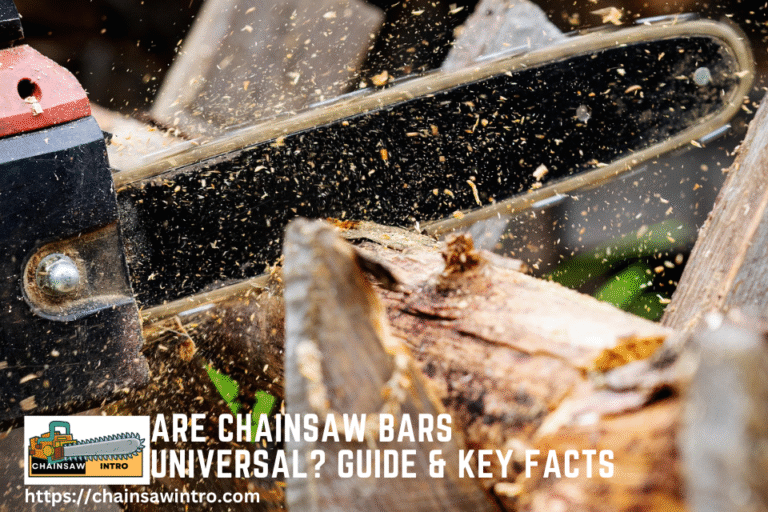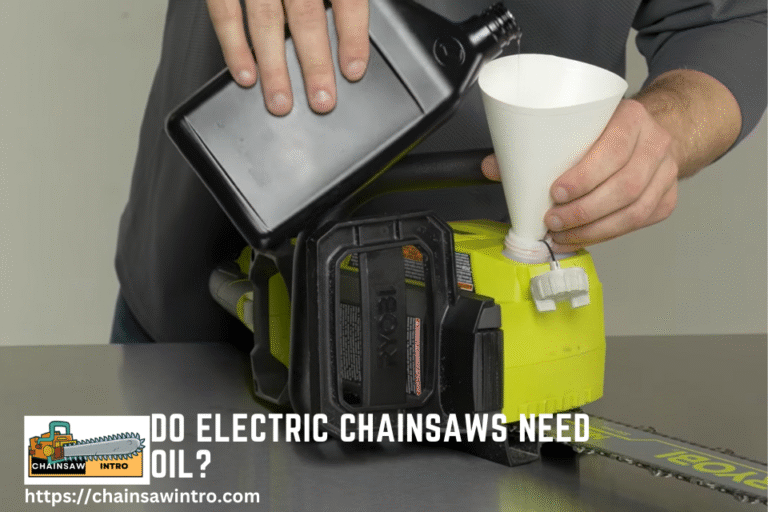When it comes to chainsaws, one brand that often sparks curiosity is Oregon. Known globally for manufacturing chains, guide bars, and other cutting accessories, Oregon has built a strong reputation in the forestry and landscaping industry. But many people still wonder: Are Oregon chainsaws any good? The short answer is yes—Oregon chainsaws are highly regarded for their durability, cutting efficiency, and affordability, especially for homeowners, farmers, and semi-professional users. Let’s explore the key facts and features that make Oregon chainsaws worth considering.
Whether you’re eyeing the Oregon CS1500, CS1400, or CS300, this guide will help you decide if Oregon is the right choice for your cutting needs, optimized for search terms like “Oregon chainsaw review 2025” and “are Oregon chainsaws reliable.”
The Reputation of Oregon Tools
Oregon has been a trusted name in chainsaw technology for decades. The company is best known for creating innovative chains and guide bars used by multiple chainsaw brands worldwide. Their expertise in cutting systems has naturally extended into designing reliable chainsaws that deliver consistent performance. Oregon chainsaws are often praised for combining practical design with user-friendly features, making them an excellent choice for beginners as well as experienced users.
Oregon is a well-established name in the chainsaw industry, with over 70 years of experience manufacturing chains, bars, and related accessories. Unlike brands like Stihl or Husqvarna, which offer gas-powered options, Oregon focuses exclusively on electric chainsaws—both corded and battery-powered models. Their lineup, including the CS1500, CS1400, and CS300, targets homeowners and light-duty users, boasting features like the PowerSharp self-sharpening system and tool-free chain tensioning. Priced between $100 and $300, Oregon chainsaws are budget-friendly, making them attractive for those avoiding the high costs of gas models.
Oregon CS1500 chain saw unboxing and 1 year review
Key Features of Oregon Chainsaws
- Ease of Use – Oregon chainsaws are lightweight compared to many competitors, making them easier to handle for extended periods.
- Power Options – They offer both corded electric and battery-powered chainsaws, appealing to eco-conscious users who prefer low noise and zero emissions over gas-powered models.
- Tool-Free Chain Tensioning – Many models come with quick, tool-free adjustments, so you can tighten or loosen the chain easily without additional equipment.
- Safety Enhancements – Oregon chainsaws are equipped with built-in chain brakes, reduced-kickback bars, and low-vibration technology to reduce fatigue and enhance safety.
- Self-Sharpening Technology – Some Oregon chainsaws feature the PowerSharp system, which allows you to sharpen the chain in seconds without removing it—perfect for users who want hassle-free maintenance.
Pros and Cons of Oregon Chainsaws
Pros
- Affordable Price: Starting at $114 for the CS1500, Oregon offers great value compared to gas models costing $400+.
- Innovative Features: PowerSharp self-sharpening and tool-free tensioning simplify operation.
- Low Maintenance: Electric design eliminates gas-related upkeep.
- Quiet and Eco-Friendly: Ideal for noise-sensitive areas with zero emissions.
- Safety-Oriented: Chain brakes and low-kickback chains enhance user safety.
Cons
- Limited Mobility: Corded models require a power source; CS300’s battery life is finite.
- Overheating Risk: Prolonged use can stress corded models’ motors.
- Not for Heavy-Duty Tasks: Unsuitable for professional logging or large tree felling.
- Minor Design Issues: Loose oil caps or priming needs can frustrate users.
Performance: How Do Oregon Chainsaws Stack Up?
Oregon chainsaws are tailored for residential tasks like pruning, cutting firewood, and felling small-to-medium trees, offering solid performance for their price point. The Oregon CS1500, a corded model with a powerful 15-amp motor, delivers a chain speed of 2,888 feet per minute (fpm), cutting through logs up to 16 inches with ease. According to 2025 reviews from TechGearLab and Popular Mechanics, it rivals some entry-level gas saws in cutting speed, making it a favorite for homeowners tackling storm cleanup or yard maintenance.
The battery-powered CS300, with its 40V battery and 16-inch bar, provides portability for tasks away from power outlets. While it’s less powerful than the CS1500, users on FireAndSaw.com praise its lightweight 12-pound design for pruning and light firewood cutting, though its runtime (20-40 minutes per charge) limits extended use. The CS1400, another corded option, offers slightly less power but excels for smaller tasks like trimming branches, with a smooth, quiet operation that’s ideal for suburban settings. For professional or heavy-duty logging, however, Oregon’s electric models can’t match the raw power of gas-powered saws like the Echo CS-590.
Build Quality and Features: What Makes Oregon Stand Out?
Oregon chainsaws are packed with user-friendly features that set them apart in the budget electric category. The standout is the PowerSharp self-sharpening system, exclusive to models like the CS1500 and CS1400. By pulling a lever for 3-5 seconds, the chain sharpens itself on the saw, saving time and effort compared to manual sharpening. Amazon reviews from 2025 highlight this as a major perk for DIYers, with one user calling it “a lifesaver for keeping the chain razor-sharp.”
Other features include tool-free chain tensioning for quick adjustments and the Lubri-Tec automatic oiling system, which keeps the chain lubricated for smoother cuts. Safety is prioritized with chain brakes and low-kickback chains, reducing risks during operation. The CS1500 and CS1400 weigh around 12-13 pounds, offering ergonomic designs that minimize fatigue. However, some users on Home Depot note minor build issues, like a loose oil cap on the CS1500 or the need to prime the oiler, which can be finicky. While the plastic components are durable for light use, prolonged heavy cutting may cause overheating, potentially stressing smaller parts.
Reliability: Can You Count on Oregon Chainsaws?
For casual users, Oregon chainsaws are highly reliable due to their electric design, which eliminates the maintenance hassles of gas-powered models—no fuel mixing, carburetor cleaning, or spark plug replacements. The CS1500 and CS1400 are particularly dependable for occasional use, with Home Depot reviews noting consistent performance over multiple seasons when properly maintained. The CS300’s battery-powered system is reliable for short tasks, but battery degradation after 300-500 charge cycles (2-3 years) can reduce runtime, with replacements costing $80-$150.
Overheating is a potential concern for corded models during extended use, as noted in Reddit’s r/Chainsaw discussions, where users recommend short breaks to prevent motor strain. The CS1500’s corded design also requires a heavy-duty extension cord (12-14 gauge), and improper cord use can lead to power loss. Oregon’s three-year warranty on corded models provides solid coverage, outpacing some competitors like Greenworks. With regular cleaning and proper chain maintenance, Oregon chainsaws are a dependable choice for homeowners.
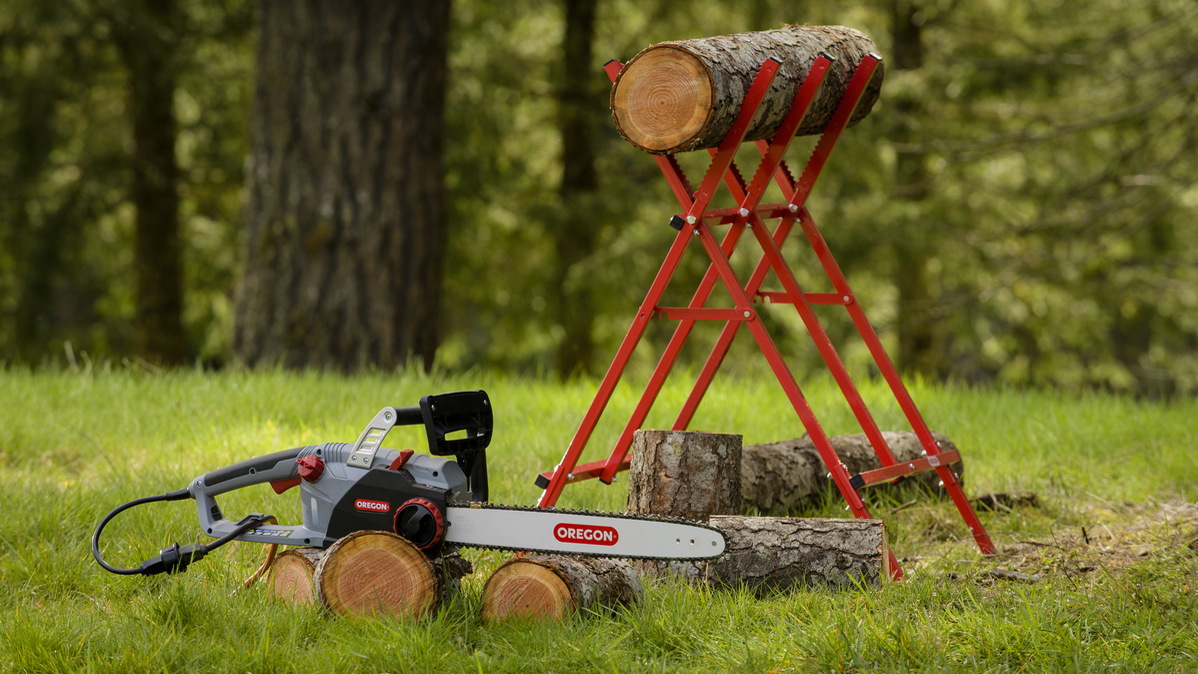
How Do Oregon Chainsaws Compare to Competitors?
Oregon chainsaws hold their own in the budget electric category but face stiff competition. The CS1500 outperforms the DeWalt DCCS670 (60V, cordless) in raw power and cutting speed, though it sacrifices portability. Makita’s UC4051A, a corded rival, offers slightly better performance but lacks PowerSharp, making Oregon more beginner-friendly. For cordless options, the Husqvarna 540i XP outshines the CS300 in power and runtime but costs nearly double. Gas-powered models like the Stihl MS 271 Farm Boss dominate for professional tasks but require more maintenance and a higher budget. Oregon’s strength lies in affordability and ease for homeowners, not heavy-duty applications.
User Feedback and Real-World Insights
Feedback from 2025 sources like Amazon, Home Depot, and ArboristSite is largely positive for Oregon chainsaws, especially the CS1500. Homeowners praise its power, quiet operation (around 80 dB), and self-sharpening feature, with one Amazon reviewer noting it “cuts like a dream for backyard projects.” The CS300 is popular for its portability, though some users complain about battery life for larger jobs. Professionals on Reddit’s r/Chainsaw recommend Oregon for light tasks but suggest gas saws for frequent, heavy use due to their durability. Regular chain cleaning and proper oil use are critical to avoid performance issues, per user tips.
Who Should Buy an Oregon Chainsaw?
Oregon chainsaws are ideal for homeowners and DIYers tackling occasional tasks like pruning, storm cleanup, or cutting firewood. The CS1500 is perfect for those near a power source seeking maximum power on a budget, while the CS300 suits users needing cordless freedom for smaller jobs. If you’re a professional logger or need to cut large trees daily, gas-powered models from Stihl or Echo are better suited. Consider your task frequency, access to power, and comfort with basic maintenance before buying.
Conclusion
Oregon chainsaws are a great choice in 2025 for homeowners seeking affordable, reliable, and user-friendly tools for light-to-moderate cutting tasks. The CS1500 stands out for its power, PowerSharp system, and value, making it a top pick for budget-conscious DIYers.
The CS300 offers cordless convenience, though battery life limits its scope. While not suited for professional or heavy-duty work, Oregon’s electric chainsaws excel in ease of use, low maintenance, and eco-friendly operation. Follow proper care guidelines—keep the chain sharp, use the right oil, and avoid overuse—and an Oregon chainsaw will serve you well. Ready to tackle your yard? Oregon’s got the tools to get it done!
Frequently Asked Questions
Who Makes Oregon Chainsaws?
Oregon chainsaws are made by Blount International, Inc., a manufacturer of outdoor power equipment. Blount is based in Portland, Oregon, and has been producing outdoor power equipment since 1947. Oregon Chainsaws was founded by Thomas E. Clancy in 1946. They were the first company to produce saw chain and guide bars in the United States, and they continue to lead the way with innovative designs. Oregon chainsaws are known for their high quality, reliability, and performance.
Do Oregon Chains Fit Stihl?
Yes, Oregon chains fit Stihl saws. In fact, many sawyers prefer to use an Oregon chain because they are designed specifically for cutting wood. The teeth on an Oregon chain are sharpened at a specific angle that provides a smooth, clean cut.
Can use Oregon chain on Makita chainsaw?
Yes, you can use Oregon chains on a Makita chainsaw. However, it is important to check the compatibility of the chain with your Makita chainsaw model before purchasing it.
Are all Oregon chainsaws worth it?
There are many different types of Oregon chainsaws available, so it’s hard to say whether or not they’re all worth it. Some people might find that certain models work better than others based on their own personal preferences and experiences with using other power tools. It may take some time before you find what works best for you and your needs though! We hope this article helped shed some light into what makes an Oregon chainsaw great.
Where are Oregon electric chainsaws made?
Oregon chainsaws are manufactured in different countries, depending on the model. Oregon electric chainsaws are made in the United States. The Oregon Professional D7500 chain saw is made in the USA, but the Oregon CS300-A6 chain saw is made in China.
Oregon is headquartered in Portland, Oregon and produces chainsaws at its manufacturing facility in Tualatin, Oregon. Oregon also has a manufacturing facility in Prineville, Oregon which produces chainsaw components.
Are Oregon chainsaws better than Stihl?
Oregon chainsaws are excellent for homeowners and light to medium-duty work, while Stihl is known for producing professional-grade, heavy-duty chainsaws. If you need a lightweight, affordable, and easy-to-use chainsaw, Oregon is a great choice. However, for large-scale forestry or commercial logging, Stihl is generally considered superior due to its raw power and durability.
How long does an Oregon chainsaw last?
With proper care and maintenance, an Oregon chainsaw can last 5–10 years or more. Regular chain sharpening, proper storage, and using the correct oil or battery maintenance practices will greatly extend the tool’s lifespan.
Do Oregon chainsaws come with a warranty?
Yes, most Oregon chainsaws come with a 2-year consumer warranty and a 1-year commercial warranty, depending on the model. This warranty covers defects in materials and workmanship, giving buyers peace of mind.
Are Oregon chainsaws good for cutting firewood?
Absolutely. Oregon chainsaws are perfect for cutting small to medium-sized firewood logs. Their lightweight build and self-sharpening PowerSharp feature make them especially convenient for homeowners preparing firewood for personal use.
Do Oregon chainsaws require a lot of maintenance?
No, Oregon chainsaws are designed to be low-maintenance compared to many gas-powered brands. Features like tool-free chain tensioning and built-in self-sharpening systems make upkeep simple and quick, even for beginners.
Are Oregon chainsaws battery-powered or gas-powered?
Oregon primarily focuses on corded electric and battery-powered chainsaws, making them ideal for eco-conscious users who prefer quiet operation and no fuel emissions. While they do offer some gas models, their strongest lineup is in electric-powered tools.
Who should buy an Oregon chainsaw?
Oregon chainsaws are best suited for homeowners, DIYers, landscapers, and small farm owners who need a reliable, lightweight tool for trimming trees, cutting firewood, and general property maintenance.
William C. Bozeman is a seasoned chainsaw expert and outdoor power tool enthusiast with over a decade of hands-on experience in tree cutting, forestry, and property maintenance. Having worked with leading chainsaw brands like Stihl, Husqvarna, and Oregon, Bozeman shares practical knowledge, safety tips, and honest reviews to help homeowners, DIYers, and professionals make informed decisions.
